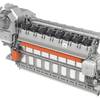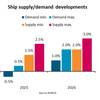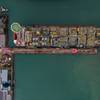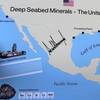PAO Sovcomflot (SCF Group) continued to increase the share of its fleet serving long-term energy projects over the first quarter ending 31 March 2018. This helped offset the negative impact of the protracted decline in freight rates that continues within the conventional tanker freight markets.
Nikolay Kolesnikov, Executive Vice President and CFO of PAO Sovcomflot, commented on the quarter's results: "In the first quarter of 2018, conditions within the global conventional tanker market remained extremely challenging. The significant imbalance between tonnage supply and demand in the crude oil and petroleum products shipping segments heaped more downward pressure on freight rates, which had reached records lows in some sectors having fallen by almost 50 per cent year-on-year.
"Against this negative background for conventional tanker owners, SCF Group continued increasing the share of total revenues derived from long-term charter contracts serving offshore oil and gas production infrastructure, while successfully optimising the structure of our conventional tanker fleet, to increase its efficiency.”
Time charter equivalent revenue (TCE) for Q1 2018 stood at USD 248.9 million (Q1 2017: USD 274.4 million). Long-term time-charter agreements have been concluded with Shell for two new-generation Aframax tankers currently under construction, that are specially designed to run on LNG.
New icebreaking standby vessel Yevgeny Primakov commences operations. The vessel is built to serve Sakhalin-2’s offshore oil and gas platforms, under a 20-year time-charter agreement with Sakhalin Energy.
A new USD 106 million project financing agreement was signed with Sberbank, with a term of up to 14 years. The proceeds will finance the construction of an Arctic shuttle tanker of the Shturman Albanov series, serving the Novy Port project (operated by Gazprom Neft).
Sovcomflot Group (SCF Group) is Russia’s largest shipping company, as well as a global leader in the maritime transportation of hydrocarbons and the servicing of offshore oil and gas exploration and production. The company’s own and chartered fleet includes 146 vessels with a total deadweight of 12.6 million tonnes. Half of the vessels have an ice class.









